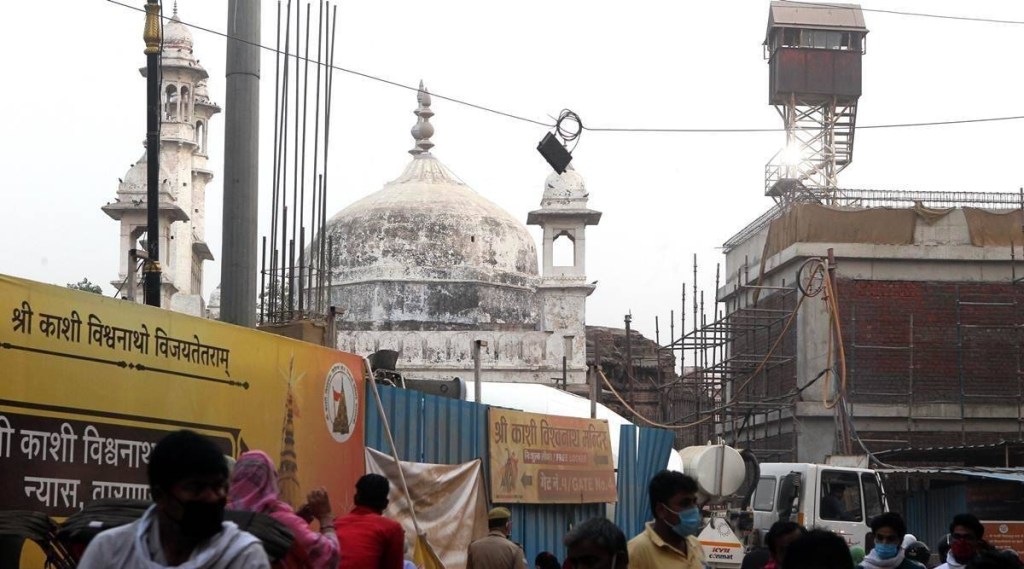The Supreme Court on Friday transferred the Gyanvapi mosque case pending before civil judge, senior division, to the court of the Varanasi district judge for trial. Observing that a “slightly more mature” and “seasoned hand” should handle the Gyanvapi mosque case, the apex court suggested that the matter be heard by a district court in Varanasi. The top court said that it will first decide maintainability of civil suit filed by Hindu devotees upon transfer of papers.
Stating that the bench is on a joint mission to preserve a sense of unification in the country, the court said once the commission report on the Gyanvapi mosque case is out, there cannot be selective leaks. “We are here in a joint mission to preserve a sense of unification in the country. Once commission report is there, there cannot be selective leaks. Do not leak things to the press. Only judge opens the report,” the SC bench said.
The bench of Justices DY Chandrachud, Surya Kant and PS Narsimha also ordered that the application filed by the Committee of Management Anjuman Intezamia (which manages Gyanvapi mosque in Varanasi) before the trial court for rejection of the siut as being barred in law, shall be decided on priority by the district judge.
The top court said that its interim order of May 17 for the protection of the Shivling area and free access to Muslims to offer namaz will continue. The court also asked district magistrate, Varanasi, in consultation with parties to ensure that appropriate arrangements are made for Wazu, if not already made.
On May 17, the top court had directed the district magistrate of Varanasi to ensure the protection of an area inside the Gyanvapi-Shringar Gauri complex where a ‘Shivling’ is said to have been found during a survey and allowed Muslims to offer ‘namaz’ and perform “religious observances”.
The bench had yesterday deferred the hearing by a day and had asked the trial court to put on hold its proceedings till it takes up the matter (on Friday).
The survey report , which was submitted before the Varanasi court on Thursday, has claimed the presence of debris of old temples at the corner of the northern and western walls outside the barricading, and Hindu motifs such as bells, Kalash, flowers and trishul were visible on pillars in the tehkhana (basement).
The Hindu parties have told the Supreme Court that Gynavapi mosque in Varanasi is not a mosque, as Mughal Emperor Aurangzeb “did not pass any order to create a waqf over the land in question or for handing over land to any Muslim or body of Muslims”.
The Muslim side has been referring to the Places of Worship (Special Provisions) Act, 1991 and its Section 4 which bars filing of any suit or initiating any other legal proceeding for a conversion of the religious character of any place of worship, as existing on August 15, 1947.

